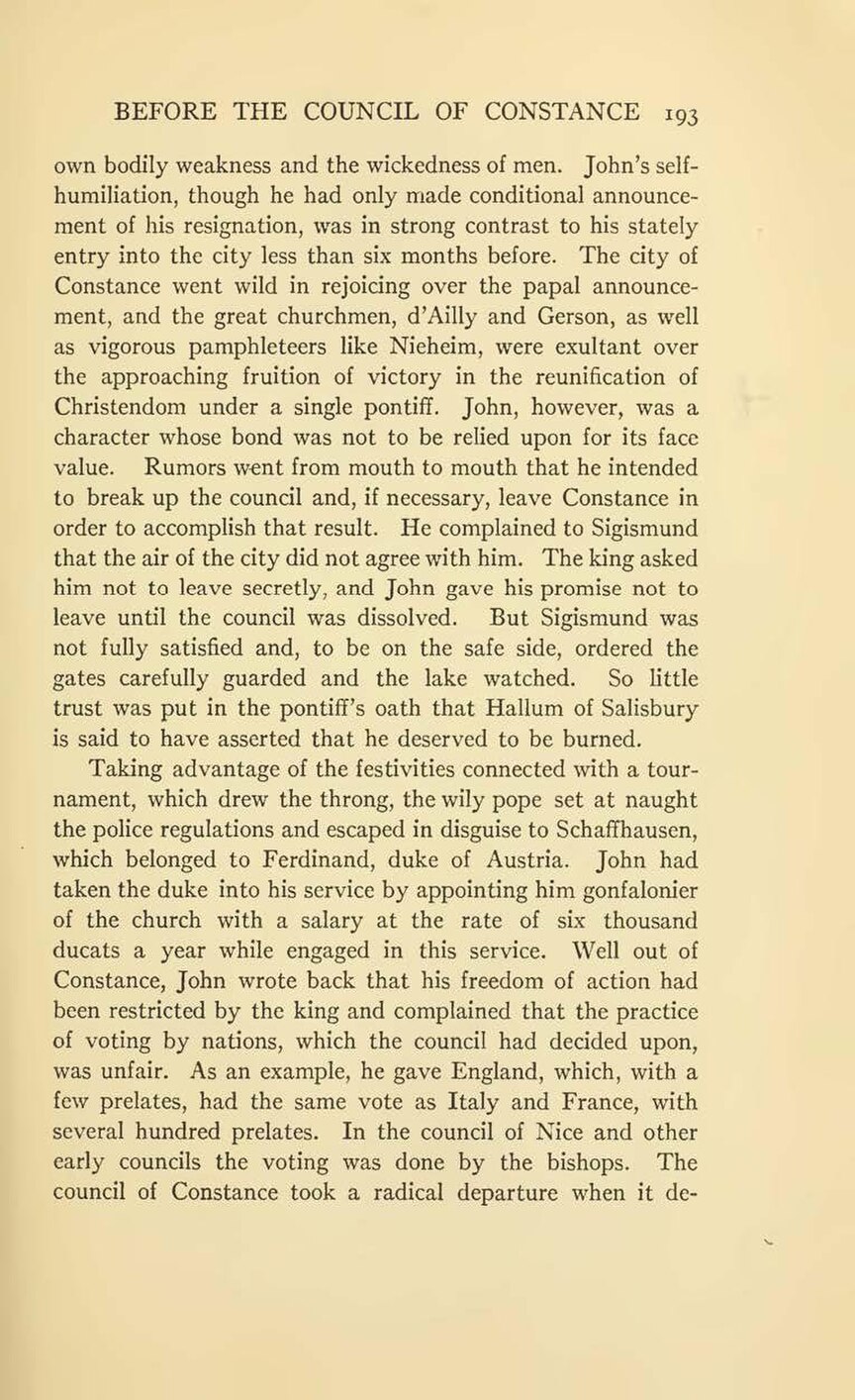own bodily weakness and the wickedness of men. John’s self-humiliation, though he had only made conditional announcement of his resignation, was in strong contrast to his stately entry into the city less than six months before. The city of Constance went wild in rejoicing over the papal announcement, and the great churchmen, d’Ailly and Gerson, as well as vigorous pamphleteers like Nieheim, were exultant over the approaching fruition of victory in the reunification of Christendom under a single pontiff. John, however, was a character whose bond was not to be relied upon for its face value. Rumors went from mouth to mouth that he intended to break up the council and, if necessary, leave Constance in order to accomplish that result. He complained to Sigismund that the air of the city did not agree with him. The king asked him not to leave secretly, and John gave his promise not to leave until the council was dissolved. But Sigismund was not fully satisfied and, to be on the safe side, ordered the gates carefully guarded and the lake watched. So little trust was put in the pontiff’s oath that Hallum of Salisbury is said to have asserted that he deserved to be burned.
Taking advantage of the festivities connected with a tournament, which drew the throng, the wily pope set at naught the police regulations and escaped in disguise to Schaffhausen, which belonged to Ferdinand, duke of Austria. John had taken the duke into his service by appointing him gonfalonier of the church with a salary at the rate of six thousand ducats a year while engaged in this service. Well out of Constance, John wrote back that his freedom of action had been restricted by the king and complained that the practice of voting by nations, which the council had decided upon, was unfair. As an example, he gave England, which, with a few prelates, had the same vote as Italy and France, with several hundred prelates. In the council of Nice and other early councils the voting was done by the bishops. The council of Constance took a radical departure when it de-
